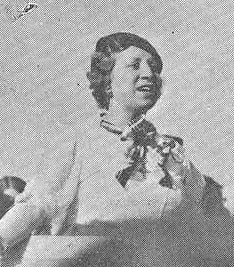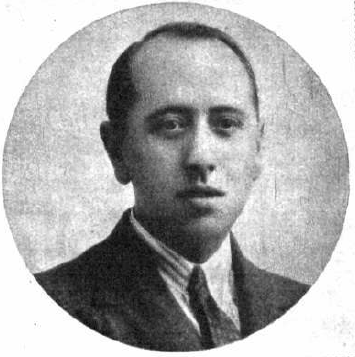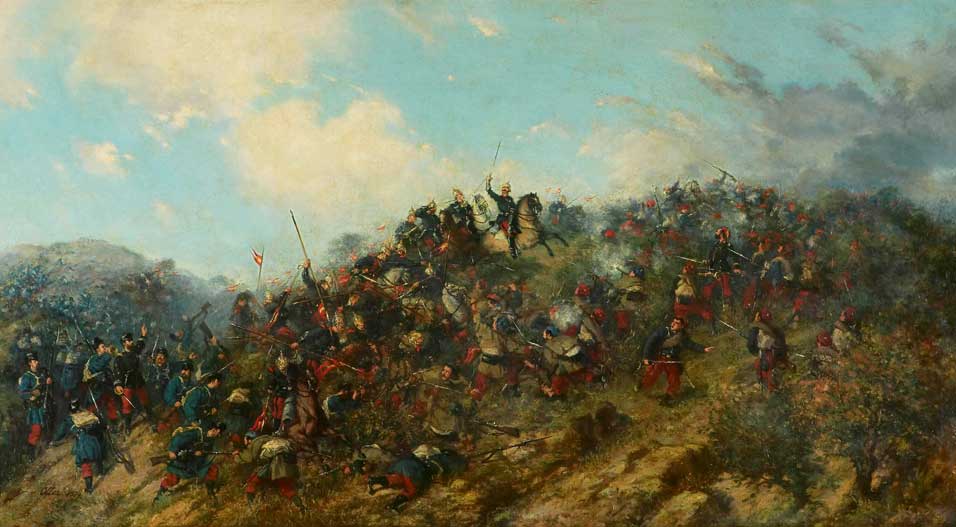|
Margaritas In The Spanish Civil War
Margaritas in the Spanish Civil War played an important role for Nationalist forces. Created in 1919 as a Carlism, Carlist social aid organization for the poor, they went into decline during the Dictatorship of Primo de Rivera as there was less of a perceived need for promotion of their ideals. The Second Spanish Republic, Second Republic saw conservative women join and form women's groups in response to what they saw as an attack on their traditions and culture. Women went into homes, organizing musical evenings, religious actions and proselytizing. Organized by regions, the Navarre, Narvarre group would become one of the biggest. María Rosa Urraca Pastor's prominence grew during this period, becoming the national face of the Margaritas. Despite men traditionally opposing political empowerment of women, Communión Tradicionalista supported the Margaritas to further their own political goals and so long as the Margaritas did not challenge male leadership. Despite a National po ... [...More Info...] [...Related Items...] OR: [Wikipedia] [Google] [Baidu] |
Carlism
Carlism ( eu, Karlismo; ca, Carlisme; ; ) is a Traditionalist and Legitimist political movement in Spain aimed at establishing an alternative branch of the Bourbon dynasty – one descended from Don Carlos, Count of Molina (1788–1855) – on the Spanish throne. The movement was founded in consequence of a dispute over the succession laws and widespread dissatisfaction with the Alfonsine line of the House of Bourbon. It was at its strongest in the 1830s but experienced a revival following Spain's defeat in the Spanish–American War in 1898, when Spain lost its last remaining significant overseas territories of the Philippines, Cuba, Guam, and Puerto Rico to the United States. Carlism was a significant force in Spanish politics from 1833 until the end of the Francoist regime in 1975. In this capacity, it was the cause of the Carlist Wars of the 19th century and an important factor in the Spanish Civil War in the 1930s. Today, Carlists are a minor party. Origins The ... [...More Info...] [...Related Items...] OR: [Wikipedia] [Google] [Baidu] |
Barcelona
Barcelona ( , , ) is a city on the coast of northeastern Spain. It is the capital and largest city of the autonomous community of Catalonia, as well as the second most populous municipality of Spain. With a population of 1.6 million within city limits,Barcelona: Población por municipios y sexo – Instituto Nacional de Estadística. (National Statistics Institute) its urban area extends to numerous neighbouring municipalities within the and is home to around 4.8 million people, making it the [...More Info...] [...Related Items...] OR: [Wikipedia] [Google] [Baidu] |
Electoral Carlism (Second Republic)
In terms of electoral success Carlism of the Second Spanish Republic remained a medium-small political grouping, by far outperformed by large parties like PSOE and CEDA though trailing behind also medium-large contenders like Izquierda Republicana. During three electoral campaigns to the Cortes combined the Carlists seized less than 50 seats, which is below 3% of all seats available. Disorganized during the 1931 elections, the Carlist candidates were a first-choice political option for some 50,000 voters; following re-organization in successive campaigns the number grew to 420,000 (1933) and 365,000 (1936), respectively 4.9% and 3.8% of active electors. In the mid-1930s as a second-choice option the Carlists were acceptable candidates for some 1.8m voters (18%). The movement enjoyed support mostly in the Northern belt of Spain; the party stronghold was Navarre, the only region where Carlism remained a dominating force; it was a minority group still to be reckoned with in Vascongad ... [...More Info...] [...Related Items...] OR: [Wikipedia] [Google] [Baidu] |
Spanish General Election, 1933
Elections to Spain's legislature, the Cortes Generales, were held on 19 November 1933 for all 473 seats in the unicameral Cortes of the Second Spanish Republic. Since the previous elections of 1931, a new constitution had been ratified, and the franchise extended to more than six million women. The governing Republican-Socialist coalition had fallen apart, with the Radical Republican Party beginning to support a newly united political right. The right formed an electoral coalition, as was favoured by the new electoral system enacted earlier in the year. The Spanish Socialist Workers' Party (''Partido Socialista Obrero Español'', or PSOE) won only 59 seats. The newly formed Catholic conservative Spanish Confederation of the Autonomous Right (''Confederación Española de Derechas Autónomas'' or CEDA) gained 115 seats and the Radicals 102. The right capitalised on disenchantment with the government among Catholics and other conservatives. CEDA campaigned on reversing the refo ... [...More Info...] [...Related Items...] OR: [Wikipedia] [Google] [Baidu] |
El Siglo Futuro
''El Siglo Futuro'' was a Spanish Traditionalist/Integrist daily newspaper, published in Madrid between 1875 and 1936. Organisational history It was founded by the Carlist politician and thinker Cándido Nocedal; the first issue came out on March 19, 1875. As the Carlists suffered a crushing defeat in the Third Carlist War, the initiative was supposed to shift focus to the long-term perspective of the literary war. The new newspaper was to disseminate the Carlist thought using the highest analytical and erudite standards. Following the death of its founder in 1885, the newspaper was taken over by his son, Ramón Nocedal. In 1889 ''El Siglo Futuro'' departed from the mainstream Traditionalism as Nocedal and his followers set up Partido Católico Nacional, a breakaway group usually referred to as the Integrists. After the death of Nocedal in 1907 the newspaper was inherited by his successor at the helm of the group, Juan Olazábal, while Manuel Senante became the editor-in-chi ... [...More Info...] [...Related Items...] OR: [Wikipedia] [Google] [Baidu] |
Centro Tradicionalista Montañés
Centro may refer to: Places Brazil * Centro, Santa Maria, a neighborhood in Santa Maria, Rio Grande do Sul, Brazil * Centro, Porto Alegre, a neighborhood of Porto Alegre, Rio Grande do Sul, Brazil * Centro (Duque de Caxias), a neighborhood of Duque de Caxias, Rio de Janeiro, Brazil *, a neighborhood of Niterói, Rio de Janeiro, Brazil * Centro, Rio de Janeiro, a neighborhood of Rio de Janeiro, Brazil * Centro (São Paulo), the historic downtown of São Paulo, Brazil *, Aracaju, Sergipe, Brazil Mexico * Centro, Guadalajara, Jalisco, Mexico * Centro, Puerto Vallarta, Jalisco, Mexico *Centro Municipality, Tabasco, Mexico * Centro (borough), Tijuana, Baja California, Mexico *Centro, Yucatán, Mexico *Centro, the historic center of Mexico City, Mexico Elsewhere * Centro Habana, Cuba *Centro, Mandaue, a barangay in the Philippines *Centro Region, Portugal * Centro, Moca, Puerto Rico, a subdivision (also called a ''barrio'') of Moca, Puerto Rico *Centro (Madrid), a district of the ... [...More Info...] [...Related Items...] OR: [Wikipedia] [Google] [Baidu] |
Rosa Erice
Rosa or De Rosa may refer to: People * Rosa (given name) *Rosa (surname) * Santa Rosa (female given name from Latin-a latinized variant of Rose) Places *223 Rosa, an asteroid * Rosa, Alabama, a town, United States *Rosa, Germany, in Thuringia, Germany *Rösa, a village and former municipality in Saxony-Anhalt, Germany * Rosà a town in the province of Vicenza, Veneto, Italy * Monte Rosa, the second highest mountain in the Alps and Western Europe *Republic of South Africa, a southernmost country in Africa. Film and television * ''Rosa'' (1986 film), a Hong Kong film released by Bo Ho Films *'' Rosa – A Horse Drama'', a 1993-94 opera by Louis Andriessen on a libretto by Peter Greenaway * "Rosa" (''Doctor Who''), an episode of the eleventh series of ''Doctor Who'' Music * De Rosa (band), a band from Scotland *"Rosa", a song by Anitta and Prince Royce from the album ''Kisses'', 2019 *"Rosa", a song by Jacques Brel *"Rosa", a song by J Balvin from ''Colores'', 2020 Vehicles *, ... [...More Info...] [...Related Items...] OR: [Wikipedia] [Google] [Baidu] |
Isabel Baleztena
Isabel is a female name of Spanish origin. Isabelle is a name that is similar, but it is of French origin. It originates as the medieval Spanish form of ''Elisabeth'' (ultimately Hebrew '' Elisheva''), Arising in the 12th century, it became popular in England in the 13th century following the marriage of Isabella of Angoulême to the king of England. Today sometimes abbreviated to Isa. Etymology This set of names is a Spanish variant of the Hebrew name Elisheba through Latin and Greek represented in English and other western languages as Elisabeth.Albert Dauzat, ''Noms et prénoms de France'', Librairie Larousse 1980, édition revue et commentée par Marie-Thérèse Morlet, p. 337a.Chantal Tanet et Tristan Hordé, ''Dictionnaire des prénoms'', Larousse, Paris, 2009, p. 38 These names are derived from the Latin and Greek renderings of the Hebrew name based on both etymological and contextual evidence (the use of Isabel as a translation of the name of the mother of John the Ba ... [...More Info...] [...Related Items...] OR: [Wikipedia] [Google] [Baidu] |
Josefa Alegría
Josefa may refer to: * 649 Josefa, a minor planet * Josefa (given name), a unisex given name See also * Josepha Josepha is a given name. Notable people with the name include: * Josepha Abiertas (1894–1929), Filipino lawyer and feminist, first woman to obtain a degree from the Philippine Law School * Josepha Barbara Auernhammer (1758–1820), Austrian pia ... * José {{Disambig ... [...More Info...] [...Related Items...] OR: [Wikipedia] [Google] [Baidu] |
Carmen Villanueva
''Carmen'' () is an opera in four acts by the French composer Georges Bizet. The libretto was written by Henri Meilhac and Ludovic Halévy, based on the Carmen (novella), novella of the same title by Prosper Mérimée. The opera was first performed by the Opéra-Comique in Paris on 3 March 1875, where its breaking of conventions shocked and scandalised its first audiences. Bizet died suddenly after the 33rd performance, unaware that the work would achieve international acclaim within the following ten years. ''Carmen'' has since become one of the most popular and frequently performed operas in the classical Western canon, canon; the "Habanera (aria), Habanera" from act 1 and the "Toreador Song" from act 2 are among the best known of all operatic arias. The opera is written in the genre of ''opéra comique'' with musical numbers separated by dialogue. It is set in southern Spain and tells the story of the downfall of Don José, a naïve soldier who is seduced by the wiles of th ... [...More Info...] [...Related Items...] OR: [Wikipedia] [Google] [Baidu] |





